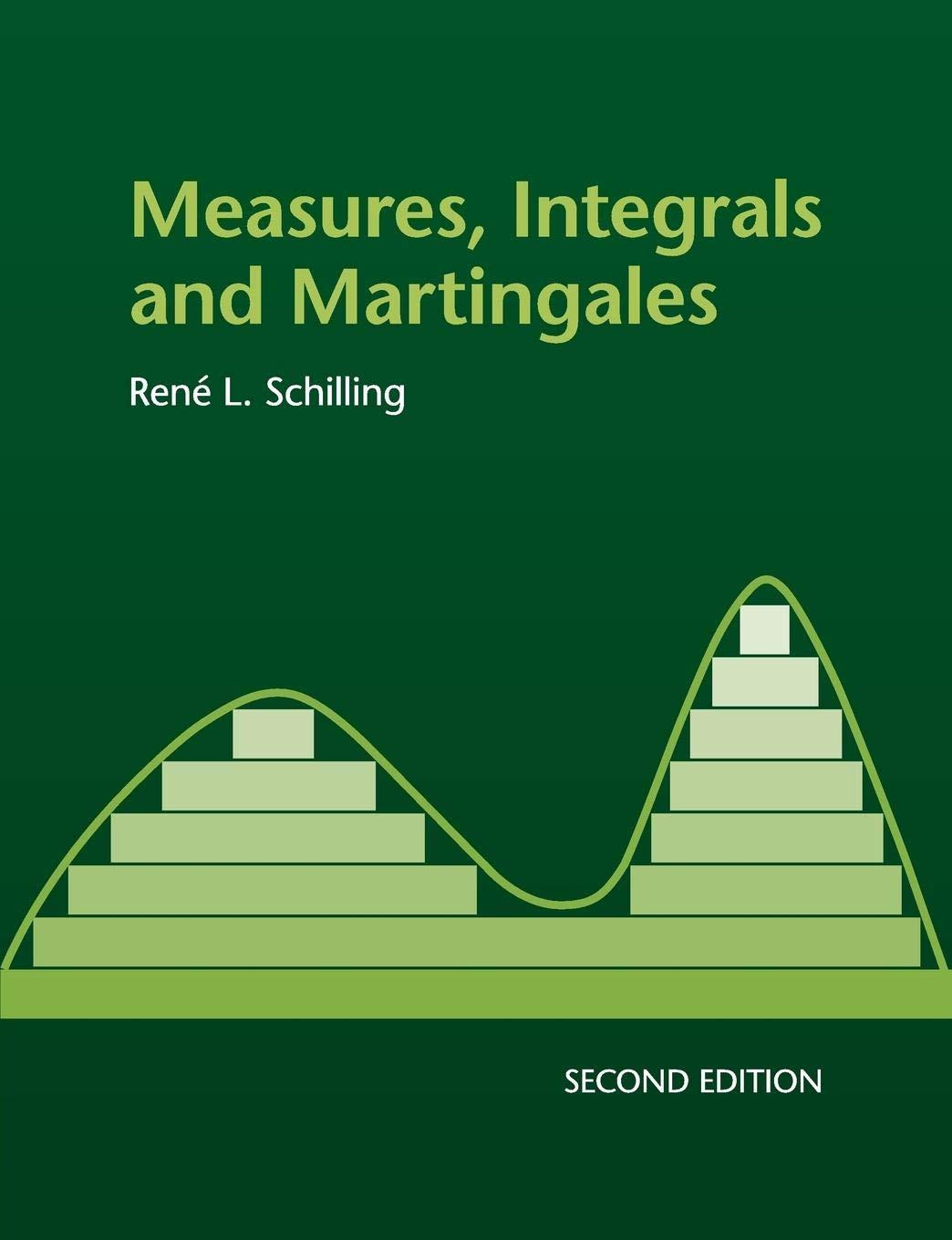The steps below show that the family (epsilon_{lambda}(t):=e^{-lambda t}, lambda, t>0), is determining for (([0, infty), mathscr{B}[0,
Question:
The steps below show that the family \(\epsilon_{\lambda}(t):=e^{-\lambda t}, \lambda, t>0\), is determining for \(([0, \infty), \mathscr{B}[0, \infty))\).
(i) Weierstraß' approximation theorem shows that the polynomials on \([0,1]\) are uniformly dense in \(C[0,1]\), see Theorem 28.6 .
(ii) Define for \(u \in C_{c}[0, \infty)\) the function \(u \circ(-\log ):(0,1] ightarrow \mathbb{R}\) and approximate it with a sequence of polynomials \(p_{n}, n \in \mathbb{N}\).
(iii) Show that \(\int \epsilon_{\lambda} d \mu=\int \epsilon_{\lambda} d u\) implies \(\int p_{n}\left(e^{-t}ight) \mu(d t)=\int p_{n}\left(e^{-t}ight) u(d t)\); thus, \(\int u d \mu=\int u d u\).
Data from theorem 28.6
![Theorem 28.6 (Weierstra) Polynomials are dense in C[0,1] w.r.t. uniform convergence. Proof (S. N. Bernstein)](https://dsd5zvtm8ll6.cloudfront.net/images/question_images/1705/8/9/7/86265adef86c7d601705897860666.jpg)
Fantastic news! We've Found the answer you've been seeking!
Step by Step Answer:
Related Book For 

Question Posted:





